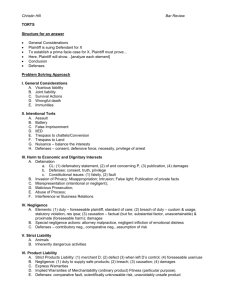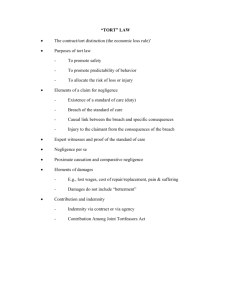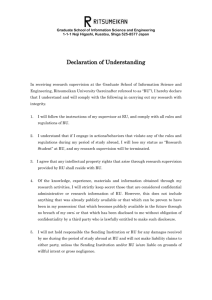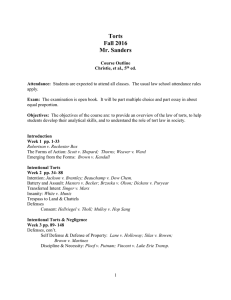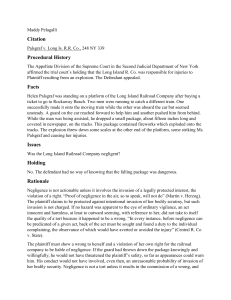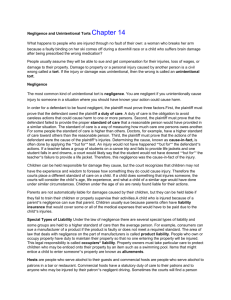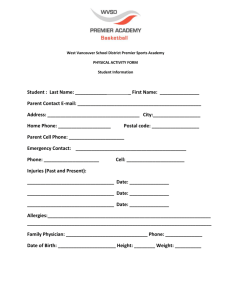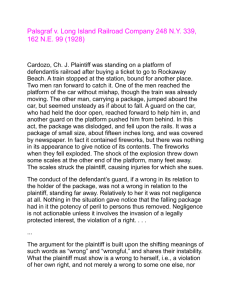Types of Torts
advertisement
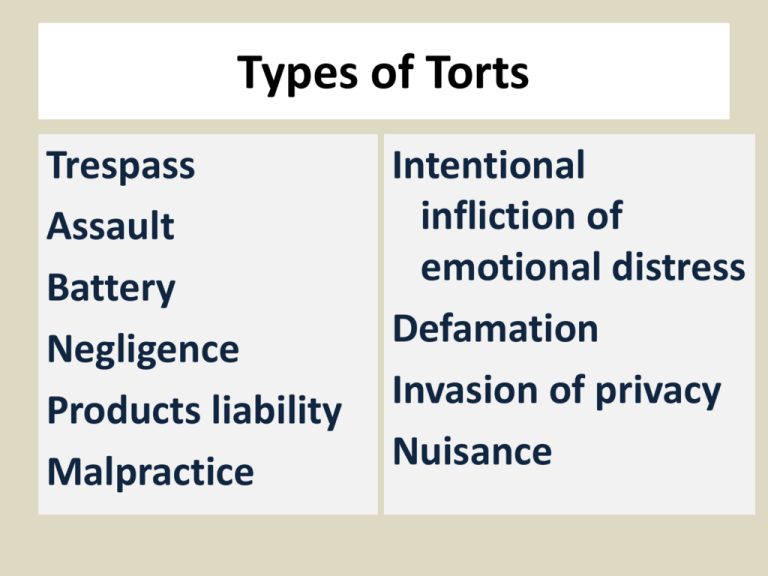
Types of Torts Trespass Assault Battery Negligence Products liability Malpractice Intentional infliction of emotional distress Defamation Invasion of privacy Nuisance Forms of Liability Fault Liability (Activities involving ordinary risk) Intentional Reckless Negligent Strict Liability (Necessarily hazardous activities) Forms of Damages Compensatory Damages Derive from Duty to Repair Injuries to Others Punitive Damages To Assure that Others Follow Duty Not to Injure Causation Cause in Fact The actual cause - “but for” X, the injury wouldn’t have occurred Proximate Cause The legal reason for liability, it places conditions on which forms of causation create liability Engaging in Risky Behavior Assumption of Risk Because plaintiff engaged in risky activity, that plaintiff voluntarily and knowingly assumed the risks inherent in the activity Consent A formal version of assumption of risk, such as found on a lift ticket Two Approaches to Mixed Negligence Contributory Negligence A defense claiming that the plaintiff, through his own negligence, contributed to his own injury Comparative Negligence Because plaintiff added to own injury, defendant is only liable for own contribution to plaintiff’s injury Holden v. Wal-Mart Stores, 525 Holden, who had prior leg problems, stepped into an alleged pothole in a Wal-Mart parking lot Following the Wal-Mart accident, Holden underwent knee surgery, costing her $25,000 Jury finds Holden 40% responsible, Wal-Mart 60% responsible
